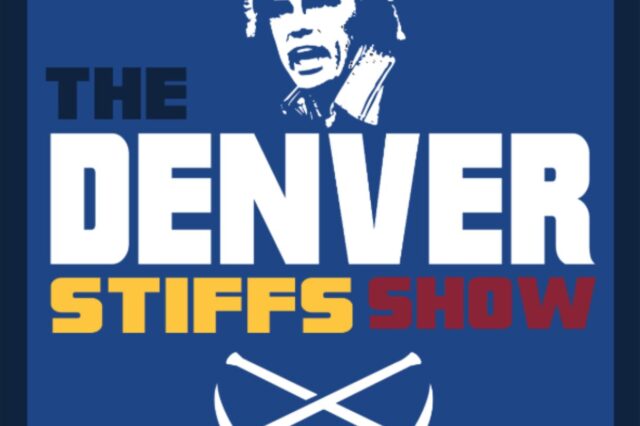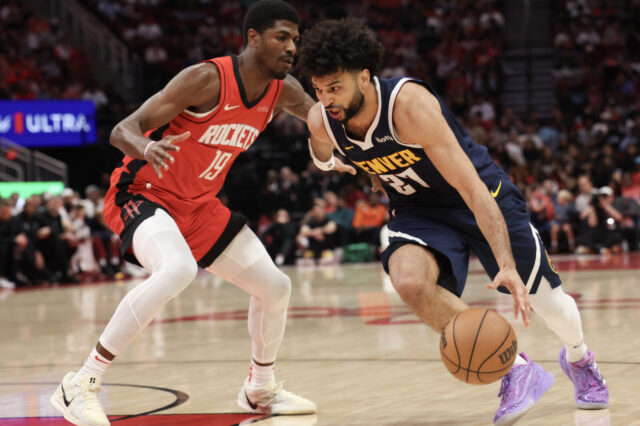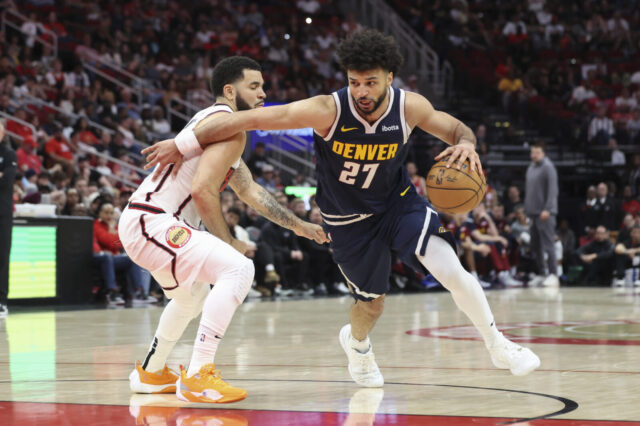Only one guy would have said all of these things…
“My big advantage over other people is that I’ve always been less mature than my age. Even though my body is old and I can barely walk, mentally I’m still 12.”
—————–———-———–———-———-———
To player: Alex, you c*********. (rhymes with knockbucker)
Player: You can’t call me a c*********! You’re a c*********!
To Player: I KNOW I’m a c*********. Now, get out there and play some defense, you c*********.
—————–———-———–———-———-———
“I never wanted to be a head coach.”
—————–———-———–———-———-———
“He’s a stiff.”
If that last quote (and the photo and subheadline) haven’t given away the easy answer on this one, you’ve not been reading Denver Stiffs for very long. In the long and illustrious history of your Denver Nuggets, there was only ever one Douglas Edwin Moe.
Before there was Mike D’Antoni, before there was Paul Westhead, there was Doug Moe. Doug Moe was the runningest, gunningest coach the NBA had ever seen when he took over the head coaching seat in Denver in 1980. Moe had been an assistant in Denver’s ABA days under Larry Brown, his former University of North Carolina teammate. When the NBA-ABA merger came together, the San Antonio Spurs found themselves in need of a new head coach, and offered the seat to Moe. Doug was in San Antonio for four seasons before taking over the reins in Denver.
Moe found his match in the Nuggets, borrowing stylistically from he and Brown’s former college coach, Dean Smith. Smith had long been a proponent of a passing-and-motion offense, but felt he never had the players at UNC to run such a scheme. Moe stepped into a a Nuggets team built for speed, and immediately stepped on the gas pedal. In his nine seasons with the team, Doug took Denver to the playoffs every season, with two division titles in the mix, in 1984-85 and 1987-88. The 84-85 squad made it all the way to the Western Conference Finals, and the 87-88 squad set a then-record bar with 54 wins.
Moe was also a player favorite who described his offensive philosophy as, “Do whatever the hell you want”, though the simplicity of the phrase belies the complexity of what the scheme could become. The style benefitted even more with Denver’s high altitude and the change of pace from most teams. Moe was always lambasted for poor defenses, as evidenced by giving up more points than most of the other teams in the league. He also knew before most that the statistic was predicated on possessions far more than defensive weakness. Moe saw a different game than most, and it served him well. The principles of Moe’s offense were simple. Don’t hang onto the ball any longer than needed (Moe said no more than two seconds), get the defense back onto their heels with a lot of passing and switching, and take the best shot available from those breakdowns.
Sound familiar? It certainly should, as it’s the hot new blueprint the league has been trying on for size since the Golden State Warriors made it a viable path to an NBA Championship. But several teams had pinned their hopes on similar schemes over the years, to varying degrees of success. The low end of that spectrum might be best exemplified by the Westhead-era Nuggets, and the best example pre-Warriors might have been D’Antoni’s Seven-Seconds-or-Less Phoenix Suns squad, led by Steve Nash and Co. Mike seems to have found several great pieces for another high-octane offense in Houston, who would have proven another tough foe for the Cleveland Cavaliers.
Moe’s offensive ideals worked well in his heyday, but work even better in today’s NBA. The changes in defensive principles due to rules changes around things like handchecking and zone play make the screening/cutting/passing game an even shinier toy these days, as these Nuggets have shown over the past few seasons. The teams that make it the furthest also have a passable-to-great defense and a smattering of All-Stars, but that doesn’t take away from the fact that Moe was one of the pioneers of what’s working in the league nearly four decades later. Doug knew that was true well before a lot of the league did, a style he’d learned in college and won with as Brown’s assistant in the ABA. Their 1974-76 ABA Nuggets were 125-43, good for a .744 pace. The eminently quotable Moe had this to say in a book about the ABA called “Loose Balls”:
“One of the biggest disappointments in my life was going into the NBA after the merger. The NBA was a rinky-dink league—listen, I’m very serious about this. The league was run like garbage. There was no camaraderie; a lot of the NBA guys were aloof and thought they were too good to practice or play hard. The NBA All-Star Games were nothing—guys didn’t even want to play in them and the fans could [sic] care less about the games. It wasn’t until the 1980s, when David Stern became commissioner, that the NBA figured out what the hell they were doing, and what they did was a lot of stuff we had in the ABA—from the 3-point shot to All-Star weekend to the show biz stuff. Now the NBA is like the old ABA. Guys play hard, they show their enthusiasm and there is a closeness in the league. Hell, the ABA might have lost the battle, but we won the war. The NBA now plays our kind of basketball.”
*quote borrowed from Moe’s Wikipedia page
That was in 1990. Look at the reality of Moe’s words today. Here’s the joy of Moe, back when both coaches were interviewed simultaneously at halftime (no, I swear):
With all of those achievements, Moe is still not in the Hall of Fame, a surprise to many passionate Nuggets fans. Moe’s career 628 wins are 19th-best in NBA history, and his “432” jersey hangs in the Pepsi Center rafters to commemorate his wins total record with the Nuggets. Though the Hall has yet to come calling, Moe was well-feted in Oakland during the Finals festivities on Sunday, winning the Chuck Daly Lifetime Achievement Award for his achievements in the game. NBA Coaches Association President Rick Carlisle’s comments included, “Congratulations to a true visionary on this special recognition of innovation and accomplishment.”
As is his usual, Moe spoke more of the honor of being awarded, and how much he appreciated it being associated with someone like Daly. For a guy who always claimed to be such a Stiff himself, Doug has always had his priorities straight, whether in front of the league spotlights, or in his usual spot at home. Here’s one more favorite Moe quote from over the years:
“I don’t ponder the meaning of life. For me, the meaning of life is to enjoy it. It goes fast. And I was put here to meet Big Jane.”
To Doug Moe (and his lovely wife Jane) from everyone who’s enjoying today’s offensive shifts, thanks for being such a Big Stiff.
This content is no longer available.
*** Oh, and on the way out, that was Hall of Famer Alex English that Moe was calling a, uh… (NSFW)


